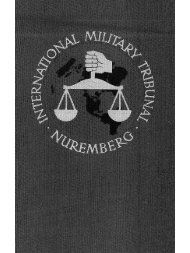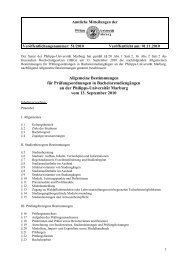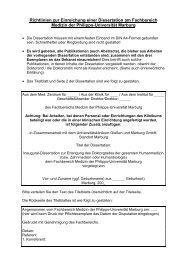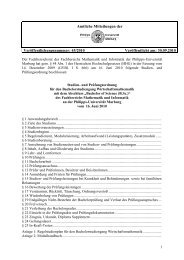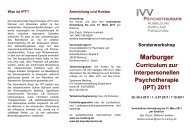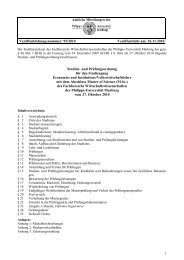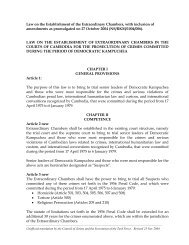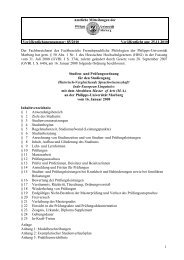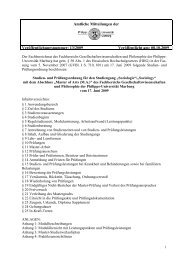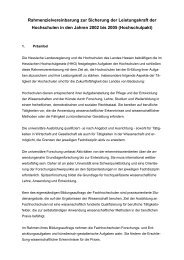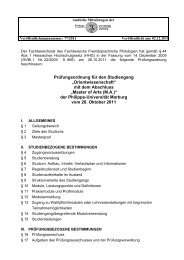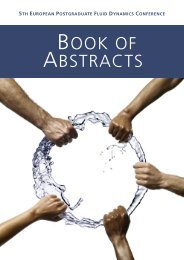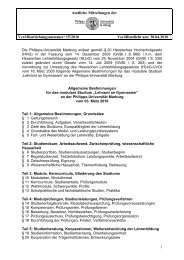Peace and Conflict Studies - uni-marburg
Peace and Conflict Studies - uni-marburg
Peace and Conflict Studies - uni-marburg
You also want an ePaper? Increase the reach of your titles
YUMPU automatically turns print PDFs into web optimized ePapers that Google loves.
derst<strong>and</strong>ing of:<br />
SLO1: The nature <strong>and</strong> definitions of democracy, including the various<br />
democratic sub-types used to classify different non-authoritarian regimes.<br />
The nature of democratic transitions, <strong>and</strong> the debates over the<br />
meaning <strong>and</strong> measurement of such transitions. The measurement <strong>and</strong><br />
analysis of the global expansion of democracy over the past century.<br />
SLO2: How countries democratise, in particular the stages of the democratisation<br />
process <strong>and</strong> the key actors involved. The role of international<br />
actors in the process of democratisation.<br />
SLO3: The relative role of social, cultural, political <strong>and</strong> economic factors<br />
in underpinning the transition from authoritarian to democratic conditions.<br />
SLO4: The nature <strong>and</strong> role of democracy in countries marked by entrenched<br />
social cleavages, in particular the extent to which democratic<br />
consolidation can overcome such cleavages, <strong>and</strong> the potential for democratisation<br />
to exacerbate inter-group conflict.<br />
SLO5: The role of political institutions in overcoming entrenched social<br />
cleavages in transitional democracies. Students will consider rival theoretical<br />
accounts of institutional effects, along with the empirical evidence<br />
used to validate these accounts.<br />
These specific learning outcomes contribute to achieving the learning<br />
outcomes of the Politics School’s taught Masters level programmes.<br />
Students who successfully complete their postgraduate programme in<br />
the Department will be able to:<br />
- demonstrate specialised knowledge of, <strong>and</strong> critical insights into, the<br />
key historical <strong>and</strong> theoretical issues in their programme area, together<br />
with familiarity with appropriate bibliographical sources.<br />
- apply theoretical <strong>and</strong> conceptual frameworks to the analysis of politics<br />
<strong>and</strong> international relations.<br />
- use a variety of research methods <strong>and</strong> critically evaluate their application<br />
in the scholarly literature.<br />
- conduct research in politics <strong>and</strong> international relations, demonstrating<br />
awareness of epistemological, methodological <strong>and</strong> ethical principles.<br />
The intended generic learning outcomes <strong>and</strong>, as appropriate, their relationship<br />
to programme learning outcomes.<br />
Students who successfully complete this module:<br />
GLO1: Will be able to work with theoretical knowledge (on defining<br />
democracy <strong>and</strong> democratic transitions, along with the role of political<br />
institutions in supporting democracy by overcoming social cleavages) at<br />
the forefront of this field.<br />
GLO2: Will be aware of any ethical dimensions of the discourses <strong>and</strong><br />
practices in comparative political analysis as well as of their own work<br />
in particular.<br />
GLO3: Will have a comprehensive underst<strong>and</strong>ing of methods <strong>and</strong> methodologies<br />
in their discipline<br />
GLO4: Will be able to undertake analysis of complex, incomplete or<br />
contradictory area of knowledge.<br />
GLO5: Will have a level of conceptual underst<strong>and</strong>ing that will allow<br />
them to critically evaluate research, advanced scholarship <strong>and</strong> methodologies<br />
<strong>and</strong> argue alternative approaches.<br />
GLO6: Will be reflective <strong>and</strong> self-critical in their research work.<br />
GLO7: Will be able to engage in academic <strong>and</strong> professional comm<strong>uni</strong>cation<br />
with others.<br />
GLO8: Will have independent learning ability required for continuing<br />
professional study.<br />
34



